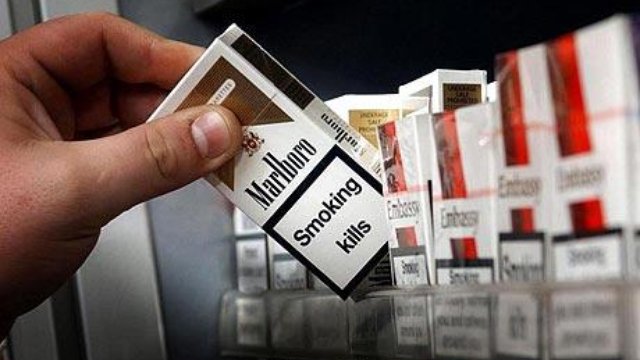On Air Now
Capital Breakfast with Fat Brestovci & Laura Anderson 6am - 10am
1 August 2017, 06:23 | Updated: 1 August 2017, 06:25

Tobacco firms are enticing Scottish retailers to promote their products despite a ban on the open display of cigarettes in shops, a new study has found.
Researchers found firms are offering rewards, including cash bonuses, to small businesses in an attempt to boost sales.
Legislation banning the display of cigarettes and other tobacco products in small shops in Scotland came into force in April 2015.
The Display research team - a collaboration between the universities of Stirling, St Andrews and Edinburgh, and ScotCen - interviewed 24 independent retailers north of the border, including convenience stores, newsagents and petrol stations.
The retailers reported being offered and accepting a range of incentives in return for practices such as retaining a tobacco unit, maintaining stock availability, positioning products to maximise prominence, a push on sales, trialling new stock and brand promotions.
While such incentives were offered to retailers before the display ban, the study indicated they had become more prevalent and easier to obtain afterwards.
"There was a perception among some retailers that whereas before the display ban they had had to work 'extremely hard' to qualify for points or bonuses, after the ban simply having specified brands in stock was sufficient,'' the study states.
Researchers also found evidence that tobacco firms are adapting the use of incentives to work around the display ban.
In addition, most of the retailers - 17 out of the 24 - were also given assistance by companies before the ban took effect to adapt their display unit to comply with the legislation, which requires tobacco products to be kept out of plain sight in units behind doors or roll down covers.
The study notes: "The rationale for bans on tobacco promotions and displays at point of sale is to reduce the ability of tobacco companies to exploit the retail environment in this way.
"However, this study demonstrates that display bans do not prevent [them] from attempting to exert influence on retailers via their sales reps.''
Martine Stead, lead author of the study, said: "The tobacco companies rely on retailers even more to promote tobacco now that displays are covered up.
"They are still offering them payments and rewards, including substantial lump sums to make verbal recommendations to customers to try a particular brand.''